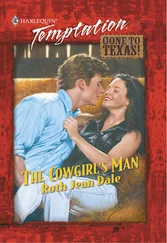Ruth Rendell - The Best Man To Die
Здесь есть возможность читать онлайн «Ruth Rendell - The Best Man To Die» весь текст электронной книги совершенно бесплатно (целиком полную версию без сокращений). В некоторых случаях можно слушать аудио, скачать через торрент в формате fb2 и присутствует краткое содержание. Жанр: Детектив, на английском языке. Описание произведения, (предисловие) а так же отзывы посетителей доступны на портале библиотеки ЛибКат.
- Название:The Best Man To Die
- Автор:
- Жанр:
- Год:неизвестен
- ISBN:нет данных
- Рейтинг книги:4 / 5. Голосов: 1
-
Избранное:Добавить в избранное
- Отзывы:
-
Ваша оценка:
- 80
- 1
- 2
- 3
- 4
- 5
The Best Man To Die: краткое содержание, описание и аннотация
Предлагаем к чтению аннотацию, описание, краткое содержание или предисловие (зависит от того, что написал сам автор книги «The Best Man To Die»). Если вы не нашли необходимую информацию о книге — напишите в комментариях, мы постараемся отыскать её.
The Best Man To Die — читать онлайн бесплатно полную книгу (весь текст) целиком
Ниже представлен текст книги, разбитый по страницам. Система сохранения места последней прочитанной страницы, позволяет с удобством читать онлайн бесплатно книгу «The Best Man To Die», без необходимости каждый раз заново искать на чём Вы остановились. Поставьте закладку, и сможете в любой момент перейти на страницу, на которой закончили чтение.
Интервал:
Закладка:
‘Do they, indeed?’
‘I’ve put through a call to London and I’m waiting for them to ring me up. If there’s anything at all promising I’m off to Deptford.’
‘While you’re waiting,’ said Wexford, ‘you might get on to Stamford police, Stamford in Lincolnshire. I’d like to know just what did happen when Hatton’s lorry was hi-jacked on the 15th of March and if they’ve got any McCloys in their district.’
‘Stamford, sir? Isn’t there a bridge there where poor old Harold won a victory before coming a cropper at Hastings?’
‘Wrong one,’ said Wexford. ‘This is a charming little ancient town of grey stone which the A.1 now fortunately by-passes. Shakespeare mentions it. “How a good yoke of bullocks at Stamford fair?” You might also ask them if they had a big hi-jacking at the end of May. It might not have been near them, of course, but it was so big they’ll likely have heard of it.’
The pretty toy of a lift had borne his weight serenely on four occasions by this time and he no longer felt much trepidation on entering it. As it sank obediently to the ground floor, he thought again about McCloy’s mysterious feat of modern highwaymanship. He had checked the file of that period and found nothing. Now he too was waiting for a phone call, promised for the afternoon. Scotland Yard would enlighten him when they had consulted their records. But how could it have escaped his knowledge and the news papers?
Sergeants Camb and Martin were gossiping in the foyer when he emerged from the lift. He gave a low cough.
‘Just discussing this Fanshawe inquest, sir,’ said Camb respectfully.
‘I thought it had been adjourned.’
‘The coroner wants to resume now, but I’ve told him we’ve nothing to go on. I’m all for waiting till Mrs Fanshawe perks up a bit.’
‘In a bad way, is she?’ said Martin. Like an old woman in a supermarket queue, Wexford thought derisively.
‘That accident’s turned her brain, I reckon. She’s no more fit to appear in court than she was six weeks ago. God knows, I can sympathize. Her husband’s dead and her only child. It’s not funny, I can tell you, trying to tell a sick woman her daughter’s dead when she keeps insisting she’s alive and in Germany.’
‘Maybe she is alive,’ said Wexford, more from a mischievous desire to throw a spanner in the works than from conviction. He was sick and tired of the name Fanshawe. He didn’t burden the uniformed branch with his problems and didn’t see why he should have to listen to Camb’s maunderings. ‘Maybe it was someone else in the car.’
‘Oh, no, sir; the aunt identified the girl.’
‘Well, it’s your problem, Sergeant. You’re the coroner’s officer.’ Wexford added annoyingly, ‘We all have our troubles and we must deal with them as best we can.’ He swung open the door and said over his shoulder, ‘I don’t know what you think you’re doing, Martin, distracting the coroner’s officer in the execution of his duty. If you want a job just run upstairs and say McCloy to Mr Burden. I’m away to the dentist myself.’
‘Not in much pain, sir, I hope?’
‘You’re behind the times,’ said Wexford, chuckling. ‘You don’t go to the dentist these days because you’ve got tooth ache, you go for a check-up.’
It was too fine a day for the car. Wexford crossed the road to Grover’s newspaper shop and turned into York Street. In the display window of Joy Jewels the sun set the rhinestone ropes and little gilt collarets ablaze, and the plane tree leaves shadowed the pavement in damask tablecloth patterns. After the petrol station and the little houses, in one of which George Carter lived, were left behind, the street petered out into a country lane. Such was the incline of the hills at this point and the arrangement of the trees that, looking straight ahead, nothing that was not absolutely pastoral could be seen. A stranger to the district, coming over the brow of the hill, would have stopped astonished and perhaps a little peeved to see Ploughman’s Lane lying beneath him.
Not that there was anything to dismay the aesthetic purist. Through the centuries about twenty-five houses had been built in Ploughman’s Lane, first of all for the minor gentry, the widows and kinsmen, for instance, of the lord of the manor; in more recent times equally large and widely spaced dwellings had been put up for the professional class.
From where he stood Wexford could see roofs, a yellow patch of new thatch on the far left, red tiles some fifty yards from it, then the pinnacled and turreted grey slate so dear to the heart of the Victorian bourgeoisie; next, half lost among the spread arms of a black cedar, the pinned-down tarred fabric that roofed a split-level ranch bungalow.
He descended briskly, glad of the shade the thickening trees afforded. A Bentley swam out from behind the ranch house’s tamarisk hedge, accelerated arrogantly and, passing him, drove him back flat against the hedge.
‘And if I should chance to run over a cad,’
Wexford quoted,
‘I can pay for the damage if ever so bad.
So pleasant it is to have money, heigh ho…’
God Almighty, he was getting as bad as Maurice Cullam! He had noted the number of the Bentley. Very nice cars all had around here. There was another Bentley outside grey slate Gothic place with a smart yellow Cortina snuggling up against it. Married bliss, thought Wexford, grinning to himself. Even the wives’ cars were sizable. No minis and no second or third-hand jalopies. But women would never be equal, he reflected, pleased to have discovered a new profundity, until the day came when men stopped thinking natural that their wives should always have the smaller. And they always did, no matter how rich they were; no matter, come to that, if the wives were richer or bigger than the husbands. He tried to think of a wife who had a larger car than her husband’s and he couldn’t think of one. Not that he particularly wanted women to be equal. As far that went, he was quite satisfied with the status quo. But to have lighted upon a new yet universal truth amused him he went on thinking about it until he came to Jolyon Vigo’s house.
The tall dark girl got off the London train and as she passed through the barrier at Stowerton station she asked the woman collecting tickets where she could get a taxi.
‘There’s only one. But he won’t be busy at this time day. You might be lucky. There you are! I can just see him, waiting on the rank.’
She watched the girl march briskly down the steps. Very few women as smart and cocksure as that one arrived at Stowerton station, even from London, even in the height of summer. The ticket collector, who had just had a new perm, thought the girl’s geometrically cut and excessively short hair awful. It made her look like a boy, or how boys used to look in the days when men had some self-respect and went to the barber’s. Flat-chested and skinny too, like a stick all the way down. You had to admit, though, that that kind made a good clothes prop. The suit she was wearing was the colour and texture of sacking, a foreign-looking suit somehow with those buttoned pockets, but the ticket collector was willing to bet it hadn’t cost a penny less than forty guineas. It hardly seemed fair that a kid of – what would she be? Twenty- three? Twenty-four? – had forty quid to throw away on a bit of sacking. Money talks all right, she thought. It was money that gave that snooty lift of the chin, too, that masterful stance and walk and that stuck-up voice.
The girl approached the taxi and said to the driver:
‘Will you take me to Stowerton Royal Infirmary, please?’ When they got to the hospital she opened her brown leather bag to pay him and he noticed that, as well as the English money, she had some funny-looking foreign notes in her wallet. He half hoped she would give him one of them by mistake so that he could make a scene, but she didn’t. He summed her up as a sharp little piece with a head on her shoulders. She was a stranger to the place but she knew where she was going. As he reversed, he saw her march confidently into the porter’s office.
Читать дальшеИнтервал:
Закладка:
Похожие книги на «The Best Man To Die»
Представляем Вашему вниманию похожие книги на «The Best Man To Die» списком для выбора. Мы отобрали схожую по названию и смыслу литературу в надежде предоставить читателям больше вариантов отыскать новые, интересные, ещё непрочитанные произведения.
Обсуждение, отзывы о книге «The Best Man To Die» и просто собственные мнения читателей. Оставьте ваши комментарии, напишите, что Вы думаете о произведении, его смысле или главных героях. Укажите что конкретно понравилось, а что нет, и почему Вы так считаете.












